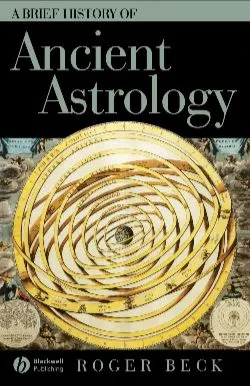
This is a decently good introduction to astrology as it was practiced in the Hellenistic and Roman worlds. There is little here on Mesopotamian, Islamic, Hindu, or post-classical European astrology. Beck is keen to emphasize that he doesn’t actually take astrology seriously, and his curiosity is more in how ancients thought rather than its practical use in modern life. To him, astrology makes some degree of sense with ancient cosmological ideas and a totally different understanding of causation than we have, but our knowledge has surpassed theirs and it has, as a result, lost its relevance. Moreover, one major issue with ancient astrology is that there are too many variables. If an astrologer made a prediction that didn’t come true, another astrologer could say, “Well, he wasn’t paying close enough attention to Saturn in Aries sextile Mercury in Gemini.” On the other hand, if an unexpected tragedy happened, an astrologer could point out an unnoticed part of the chart to explain it.
This is a total adequate argument, but the fact that Beck repeatedly comes back to this point tells me that he has a bone to pick with modern astrology; or, alternatively, he’s afraid that his words will be taken out of context and used for the sake of astrology. Either way, the repetition seems unnecessary and detracts from the interesting parts of the book.
The real strength of the book is Beck’s understanding of the astronomy that fed into classical astrology. The way celestial bodies move, and how they would have been observed and understood by the ancients, receives excellent coverage here. To Beck’s credit, he also recognizes (like Augustine of Hippo) that astrology is a symbolic system. That is, it is one of the many ways in which the logos is inscribed, and it can be “read” in many different ways. This seems sound to me.
The actual coverage of things like “houses,” “signs,” and “planets” are decent, but the focus on serious history takes away from what I consider the most interesting parts of it: the poetic resonance, the archetypal meanings, and so on. There is an interesting discussion of contradictory meanings: why is Sagittarius “bestial” instead of “human?” Why is Taurus a “feminine” sign? Is the sun beneficial or malefic? Unfortunately, the discussion in here is a bit skeletal–the book is too brief to fill in that material. But, these are better found in cultural history works or texts by modern astrologers, not scholars.
In short, the book is worth a read for a sense of the science involved in creating classical astrology, as well as to learn a bit about the ancients understood the cosmos, but I wish it could have been a bit richer. I can’t necessarily fault the author for that, given the brevity of the work, but I wish that he didn’t waste so much time on whether astrology is “factually sound” or not.